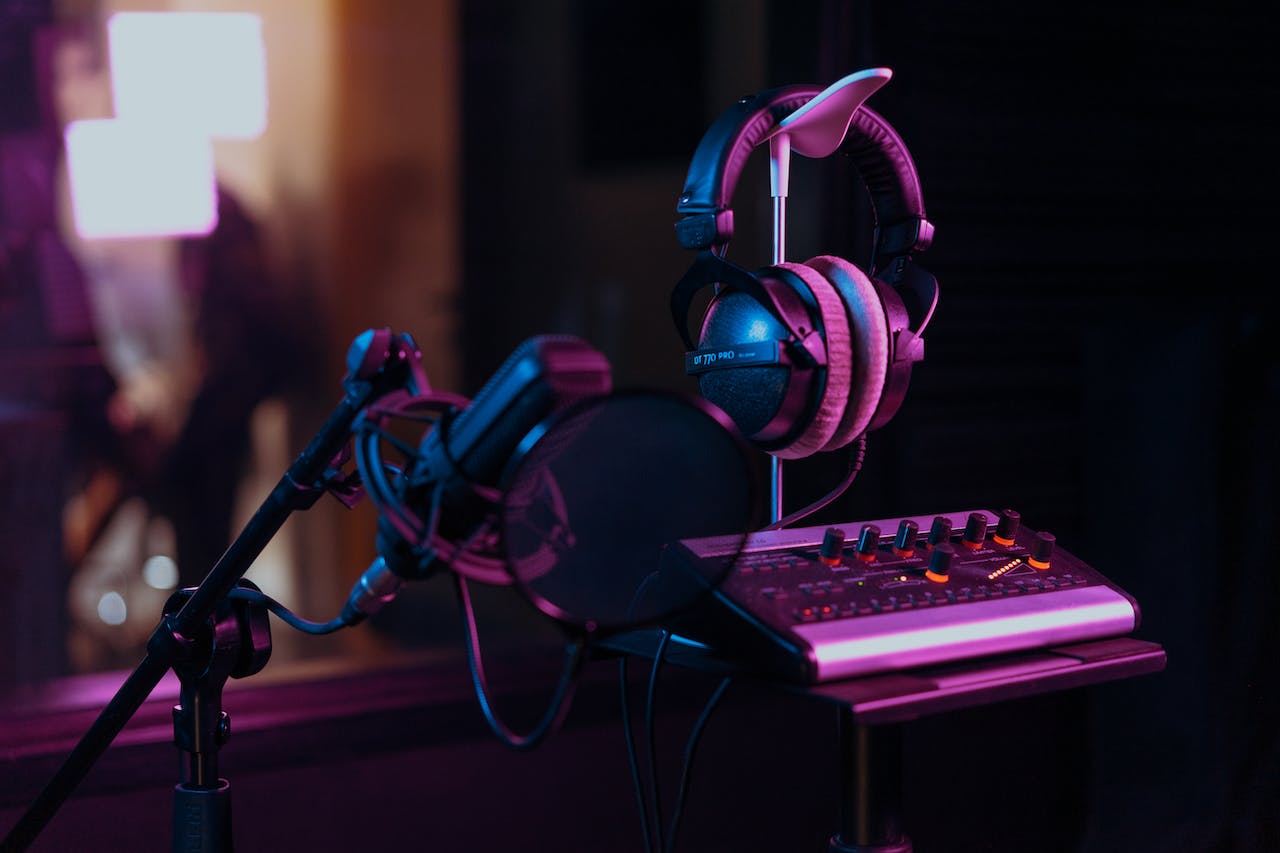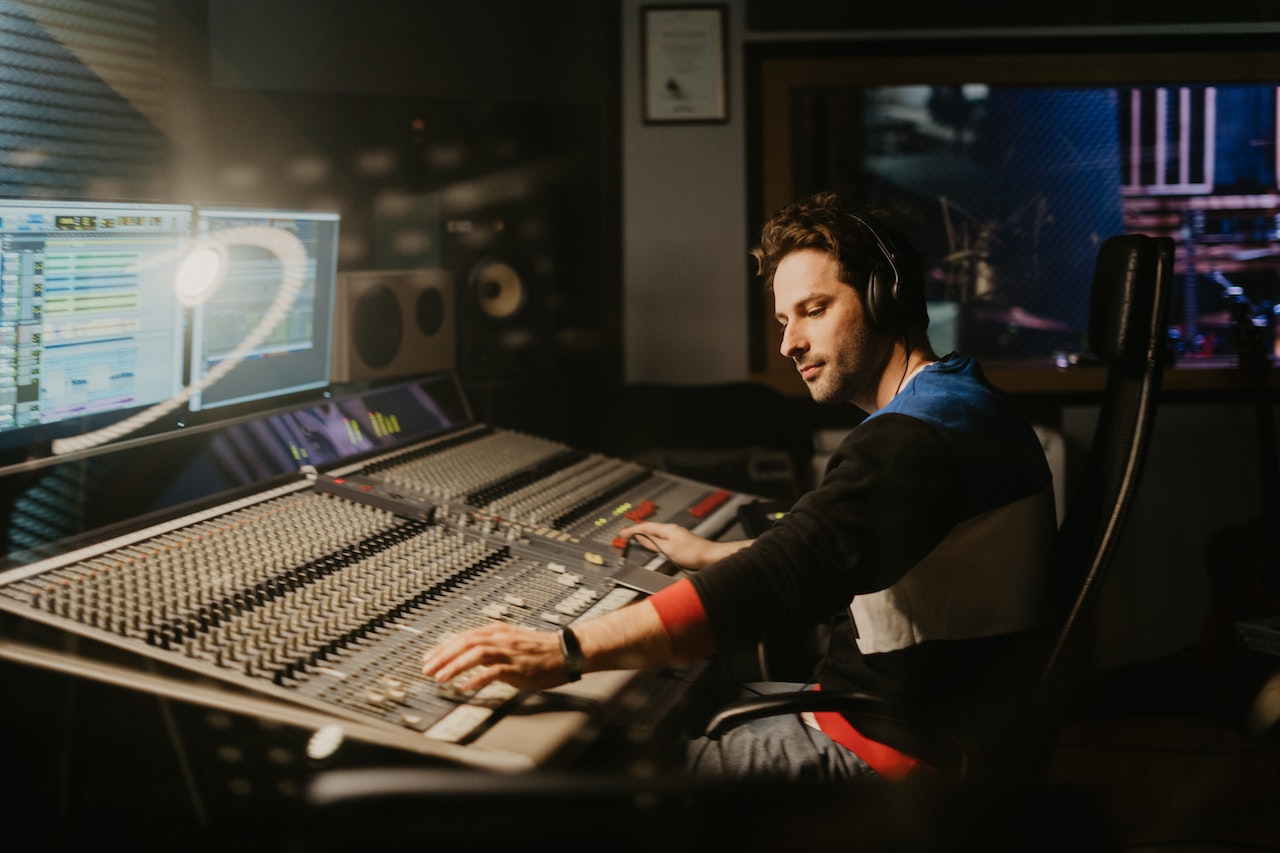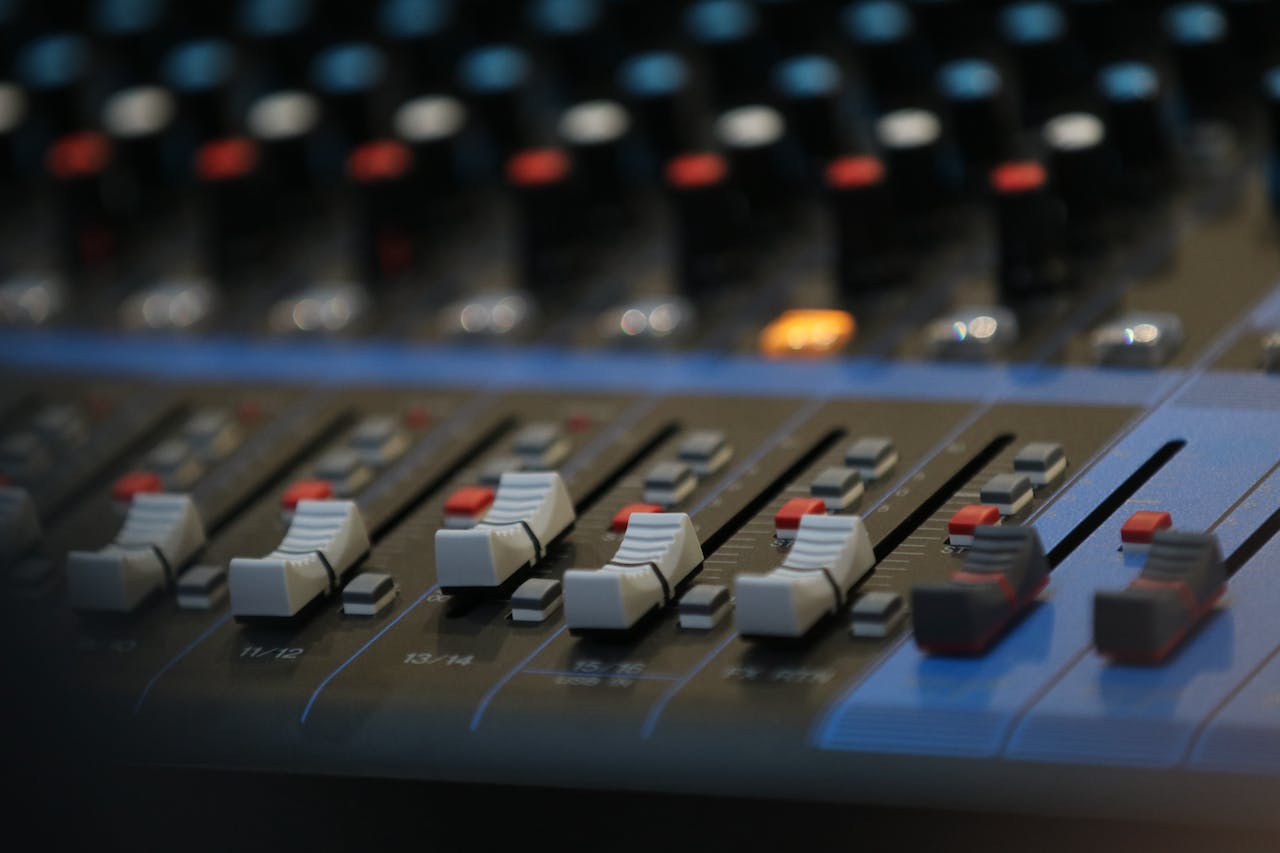You’re about to embark on the thrilling journey of podcasting. Exciting, right? But here’s a question that might be buzzing in your mind: “Do you need a mixer for a podcast?” This is where we step in to guide you. Picture a mixer as the unsung hero behind the scenes, ensuring your podcast sounds professional and crisp.
In this article, we’ll explore the nuts and bolts of what a mixer does and how it can elevate your podcast from good to great. Whether you’re a seasoned podcaster or just starting out, understanding the role of a mixer is key to creating audio content that resonates with your audience. So, let’s dive in and unravel the mysteries of the podcasting mixer!
Contents
What Is A Mixer?
Think of a mixer as the control center of your podcast’s audio universe. It’s a device that lets you manage multiple audio inputs, blending them into one harmonious output. Imagine connecting microphones, music sources, and even phone calls – the mixer juggles all these audio elements seamlessly. At its core, a mixer allows you to adjust volumes, fine-tune audio levels, and add effects to your great-sounding audio, ensuring each sound element in your podcast is balanced and clear.
With knobs, sliders, and buttons, mixers might seem daunting at first glance. But fear not! They’re designed to give you complete control over your podcast’s sound, transforming your audio experience from ordinary to extraordinary. Whether you’re conducting interviews, adding music, or just speaking your mind, a mixer ensures your listeners get the best auditory experience.
The Role Of Mixer In Podcasting
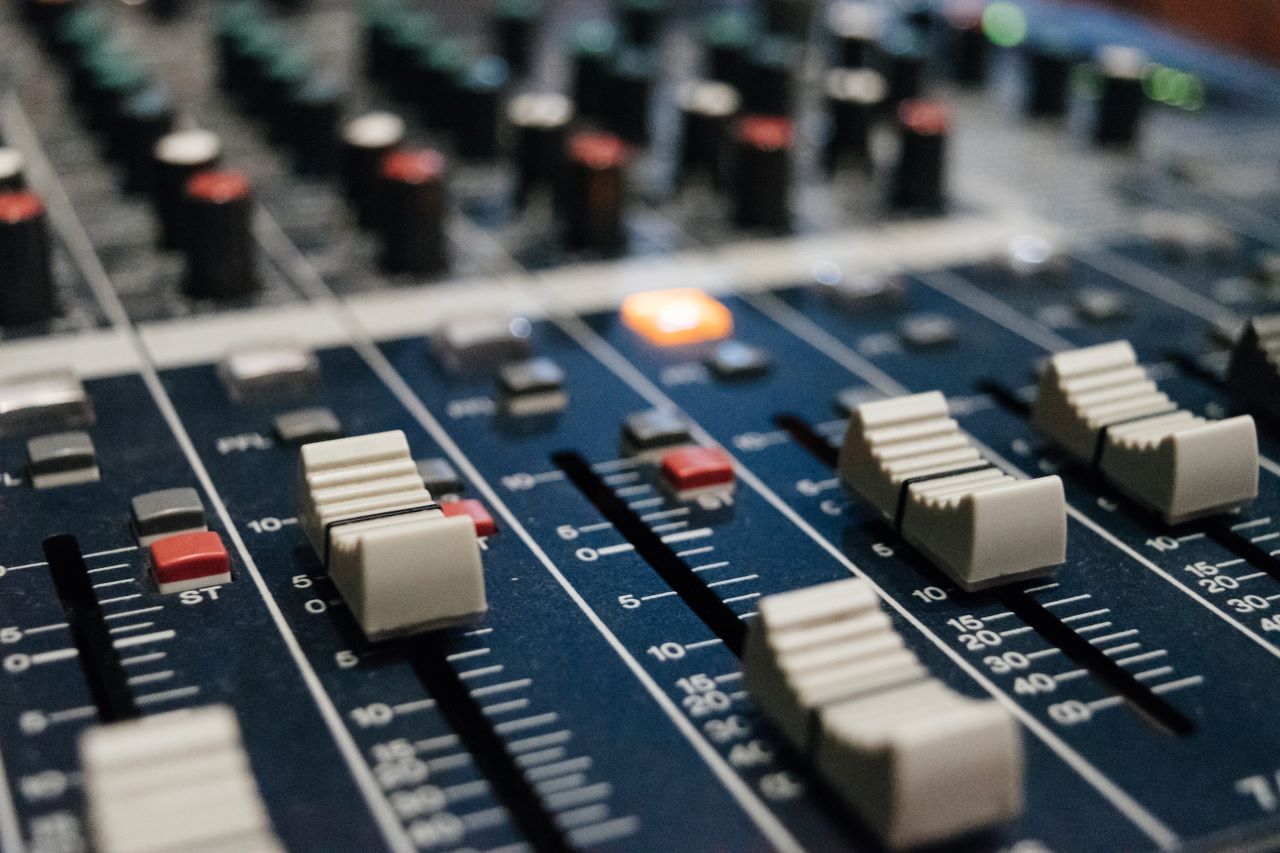
Photo by Alexey Ruban on Unsplash
In the world of podcasting, a mixer plays a pivotal role. It’s not just about making your audio sound better; it’s about giving you creative control. A mixer empowers you to blend voices, music, and sound effects with precision, crafting an auditory experience that captivates your audience. It’s particularly invaluable when you have multiple hosts or guests.
Instead of struggling with uneven audio levels, a mixer lets you adjust each voice individually, ensuring everyone is heard clearly and distinctly. Moreover, it’s a lifesaver for live podcasts. Real-time adjustments mean you can react on the fly, fixing issues before they reach your listeners’ ears.
And for those who love to add a personal touch, mixers offer the ability to infuse your podcast with unique sound effects and musical cues, setting the tone and mood of each episode. Ultimately, a mixer is more than just a tool; it’s your partner in creating a polished, professional-sounding podcast that stands out in a crowded space.
Reasons You Should Use A Mixer For Your Podcast
Let’s explore the unique and authentic reasons why a mixer should be an essential part of your podcasting toolkit.
1. Superior Sound Quality
When it comes to podcasting, the quality of your audio can make or break your show. A mixer plays a crucial role in achieving superior sound quality. It allows you to control and balance the audio levels of your voice, music, and any other sound inputs. This balance is essential for producing a clear and professional sound.
A mixer also helps to filter out unwanted background noise and minimize echo, ensuring that your voice is crisp and prominent. The ability to fine-tune audio settings on a mixer means you can adjust the bass, treble, and mid-tones to create the perfect sound for your podcast. This level of control is essential for maintaining a consistent quality throughout your episodes, making your podcast more enjoyable and easier to listen to.
2. Multiple Microphone Management
Handling multiple microphones is a common challenge in podcasting, especially when recording with multiple hosts or guests. A mixer simplifies this process significantly. Each microphone can be connected to the mixer, allowing you to control the volume and quality of each input separately. This means if one guest is speaking more softly than others, you can easily adjust their levels without affecting the others.
This is particularly useful in roundtable discussions or interviews, where maintaining a balance between speakers is key. Additionally, some mixers come with features like mute buttons and solo buttons for each channel, giving you even more control during live recordings.
3. Real-Time Audio Control
In live podcasting or when recording in one take, real-time audio control is invaluable. A mixer allows you to make adjustments as you record, which means you can immediately rectify any audio issues. This capability is crucial for maintaining the flow of your podcast and keeping your audience engaged. It also reduces the need for post-production work, allowing you to publish your episodes faster.
This real-time control is not just about fixing problems; it also allows you to experiment with different audio levels and effects on the spot, giving your podcast a dynamic and lively feel.
4. Enhanced Creativity With Sound Effects
A mixer can significantly enhance the creativity of your podcast. With a mixer, you can easily add and control sound effects and background music. This can help set the tone of your podcast, emphasize certain points, or simply make your podcast more entertaining. For storytelling podcasts, sound effects can bring your stories to life, creating a more immersive experience for your listeners.
The ability to adjust these sounds in real time allows for greater creativity and spontaneity in your recordings, making each episode unique.
5. Integration Of Different Audio Sources
Integrating different audio sources is essential for adding depth and variety to your podcast. A mixer allows you to easily blend your voice with music, sound effects, and other audio inputs like phone calls or pre-recorded interviews.
This is particularly important if you’re looking to create a polished and professional-sounding podcast. The seamless integration of different audio sources can enhance the overall listening experience, making your podcast more engaging and professional.
6. Improved Listener Engagement
The quality of your audio can greatly affect listener engagement. A podcast with a clear, well-balanced sound is more likely to retain listeners and attract new ones. A mixer plays a critical role in achieving this quality. By ensuring that your audio is consistently clear and well-balanced, you create a more enjoyable listening experience, which can lead to increased listener engagement and loyalty.
This is particularly essential in a crowded podcasting market, where audio quality can set you apart from the competition.
7. Volume Consistency
Maintaining consistent volume levels throughout your podcast is crucial for a professional sound. Fluctuating volumes can be frustrating for listeners and may lead to them tuning out. A mixer ensures that your audio levels are consistent, providing a smooth and enjoyable listening experience.
This is especially important when transitioning between different segments of your podcast or when incorporating music and sound effects. Consistent volume levels not only improve the quality of your podcast but also reflect a high level of production value.
8. Advanced Audio Effects And Features
Mixers come with a range of advanced audio effects and features that can greatly enhance your podcast. These include equalization, which allows you to adjust the balance of different frequencies in your audio, and compression, which helps to even out the volume levels and reduce the dynamic range of your audio.
These features give you the ability to fine-tune your sound and create a more polished and professional podcast. Additionally, many mixers offer effects like reverb and echo, which can be used to add depth and dimension to your audio.
9. Professionalism And Credibility
Using a mixer can significantly enhance the professionalism and credibility of your podcast. High-quality audio is often a key factor in how listeners perceive the quality of your content. A mixer allows you to produce a podcast with a clear, balanced, and professional sound, which can help build your credibility as a podcaster.
This is exceptionally significant if you’re looking to attract sponsors or grow your audience. A professional-sounding podcast can also open up opportunities for collaborations with other podcasters and industry professionals.
10. Long-Term Cost Efficiency
Investing in a mixer can be cost-efficient in the long term. While there is an upfront cost, a mixer can save you time and money in post-production. With a mixer, you can achieve the sound quality you want during recording, reducing the need for extensive editing and post-production work.
This can be particularly beneficial if you’re producing podcasts on a regular basis, as it allows for a more efficient production process. Additionally, a high-quality mixer can last for many years, making it a worthwhile investment for your podcasting journey.
Related: Best Podcast Mixers
Do You Need A Mixer For A Podcast?
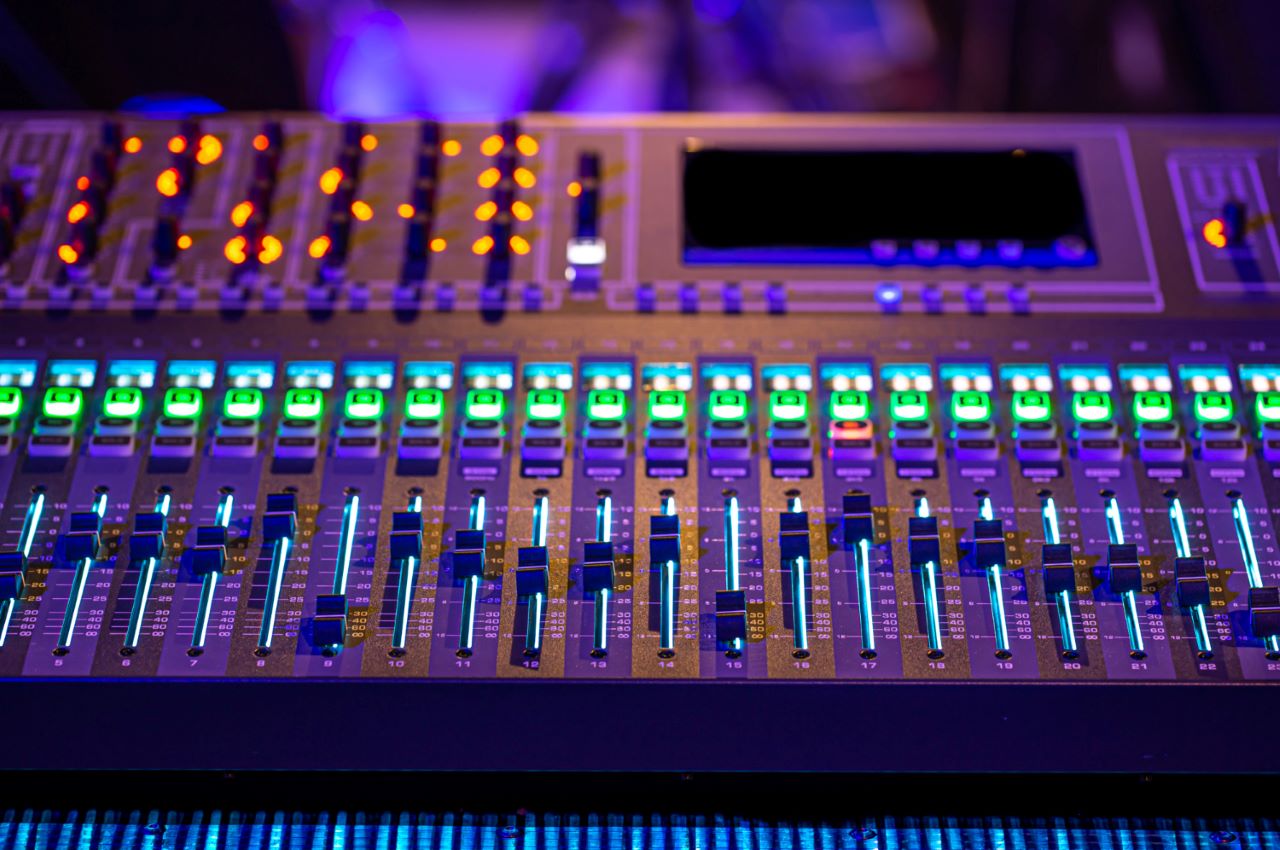
Image by pvproductions on Freepik
Podcasting is an art that blends content, personality, and technical skills. One of the crucial technical decisions is whether or not to use a mixer. This choice can significantly impact the quality and production process of your podcast. Our goal is to help you evaluate your specific needs and make an informed decision that aligns with your podcasting ambitions.
Scenarios Where A Mixer Is Essential
Diving into the world of podcasting, you’ll find that certain scenarios almost demand the use of a mixer. It’s in these situations that a mixer goes from being a luxury to an essential tool, pivotal for achieving the desired audio quality and functionality. From managing multiple audio channels to enhancing live interactions, the importance of a mixer becomes evident.
Multi-person Podcasts
In scenarios where your podcast features multiple speakers, a mixer plays a critical role. It allows for individual control over each speaker’s audio, ensuring everyone’s voice is balanced and clear. This is important in discussions, debates, or any format where multiple voices need to blend harmoniously. The ability to adjust volume, tone, and other settings for each speaker ensures a professional and engaging audio experience for your listeners.
Incorporating Live Calls or Interviews
When your podcast format includes live calls or interviews, a mixer becomes a vital tool. It provides the capability to integrate and manage external audio sources, such as phone calls or internet-based communications. This functionality is crucial for maintaining audio clarity and smooth transitions during live interactions, ensuring that both the host and the guest are heard clearly and without interruption.
Podcasts with Complex Audio Elements
For podcasts that utilize a variety of audio elements like music, sound effects, or different audio clips, a mixer is essential. It grants you the flexibility to blend these elements seamlessly, enhancing the storytelling aspect of your podcast. The creative control offered by a mixer elevates the overall listening experience, making your podcast more dynamic and engaging.
Live Streaming Podcasts
In the realm of live streaming, real-time audio management is key, and this is where a mixer shines. It allows for immediate adjustments and mixing, which is imperative to maintain audio quality during live broadcasts. The ability to adapt to the spontaneous nature of live streaming is crucial, and a mixer equips you with the tools to do just that.
Situations Where You Can Skip The Mixer
Conversely, there are situations in podcasting where a mixer might not be necessary. Understanding when you can skip this piece of equipment can save you from unnecessary expenses and complications, especially when simplicity or budget constraints are key considerations. Here, we delve into scenarios where the functionality of a mixer may not significantly benefit your podcast.
Solo Podcasts with Minimal Editing
Solo podcasters who focus on content that requires minimal audio editing may find that a mixer is not essential. In many cases, basic audio adjustments can be effectively managed with digital editing software, making the need for a mixer less critical.
Budget-Conscious Beginners
For those just starting in podcasting, especially with budget constraints, beginning without a mixer is a viable option. Initially, the focus should be on developing high-quality content. As your podcast grows, you can then consider investing in more advanced equipment like a mixer.
Mobile or On-the-Go Podcasting
Podcasters who record in various locations or on the move might find a mixer impractical due to its size and complexity. In such cases, portable digital recorders or sophisticated smartphone apps can be adequate substitutes, offering sufficient audio quality for on-the-go recordings.
Podcasts with Post-Production Focus
If the majority of your podcast’s audio work is handled in post-production, the need for a mixer diminishes. Advanced editing software available today can perform most of the audio mixing tasks required for pre-recorded podcasts, making a mixer less of a necessity in such scenarios.
These scenarios aim to provide a clear understanding of when a mixer is a must-have and when it’s an optional tool.
Choosing The Right Mixer For Your Podcast
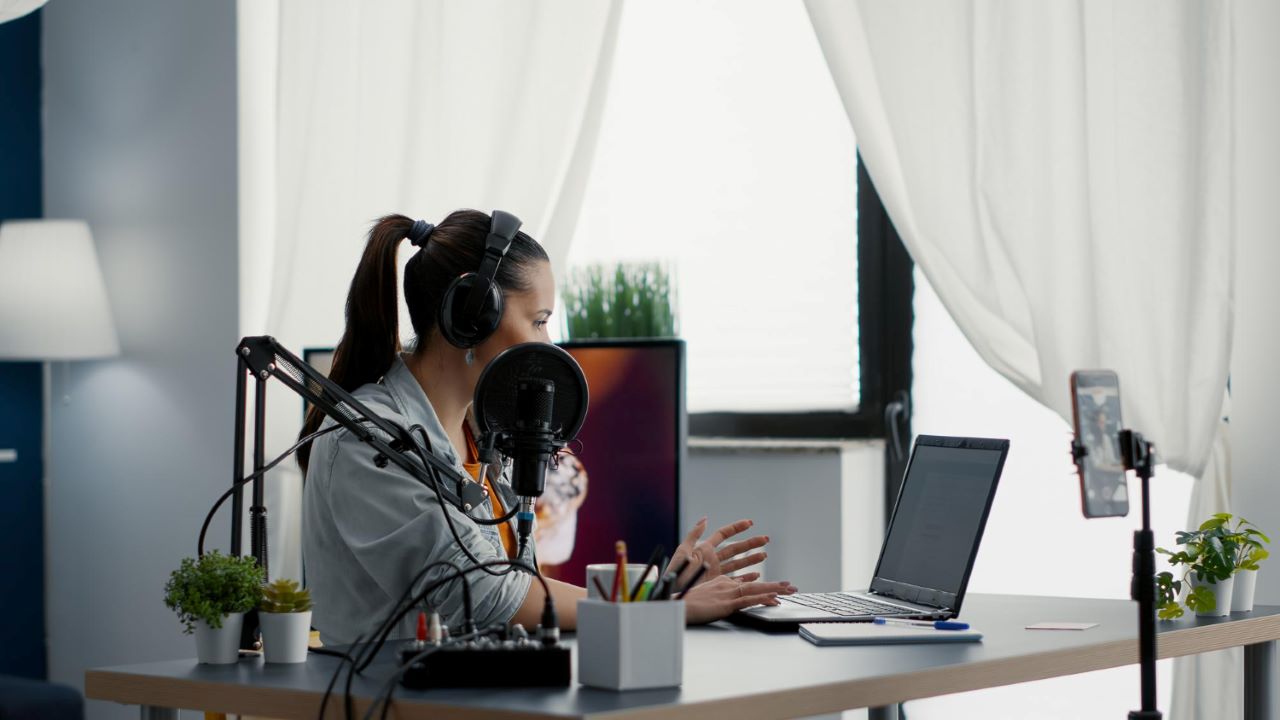
Image by DCStudio on Freepik
Selecting the right mixer for your podcast is a crucial step in shaping the audio quality and overall production of your show. It’s about finding the perfect balance between technical capabilities and your specific podcasting needs.
Input/Output Options
The input/output options of a mixer are the backbone of your podcast’s audio infrastructure. Inputs determine how many and what types of sound sources you can connect. For a podcast with multiple hosts or guests, having a mixer with multiple XLR inputs is crucial. This allows for the connection of professional-grade microphones, ensuring high-quality audio capture. Additionally, consider auxiliary inputs for connecting phones or computers, which are useful for incorporating music or sound clips.
Output options are just as critical. These determine how you monitor and route your sound. Look for mixers with multiple headphone outputs, especially useful in a multi-host podcast where each participant needs to monitor the audio.
Also, consider the main output options – will you be connecting to a computer for digital recording or to an amplifier for live broadcasts? Some mixers offer USB outputs, simplifying the connection to digital recording software.
Onboard Effects And Processing
Onboard effects and processing capabilities can dramatically enhance your podcast’s production quality. Equalization (EQ) is a fundamental effect that allows you to adjust the balance of low, mid, and high frequencies in each audio channel.
This is essential for ensuring that each voice in your podcast is clear and distinct. Compression is another crucial effect. It helps maintain consistent volume levels, reducing the difference between the loudest and quietest parts of the audio.
Beyond these, some mixers offer advanced effects like reverb or echo, which can add depth and dimension to your audio. However, use these sparingly in a podcast setting to avoid distracting from the content. Lastly, some high-end mixers provide built-in noise gates and limiters, which help reduce background noise and prevent audio clipping, respectively.
Budget Considerations
Your budget will significantly influence the type of mixer you can afford. Entry-level mixers are great for beginners or those with simple needs, offering basic functionality at a lower cost. These are typically suitable for solo podcasters or shows with minimal audio inputs. As you move up the price ladder, mixers offer more inputs, better sound quality, and advanced features like onboard processing and effects.
However, it’s important to balance your budget with your actual needs. Overspending on a high-end mixer with features you’ll never use can be as counterproductive as saving money on a mixer that doesn’t meet your requirements. Consider not only the initial cost but also the potential for future upgrades. Sometimes, investing a bit more upfront for a mixer that grows with your podcast can be more cost-effective in the long run.
Ease Of Use And Interface
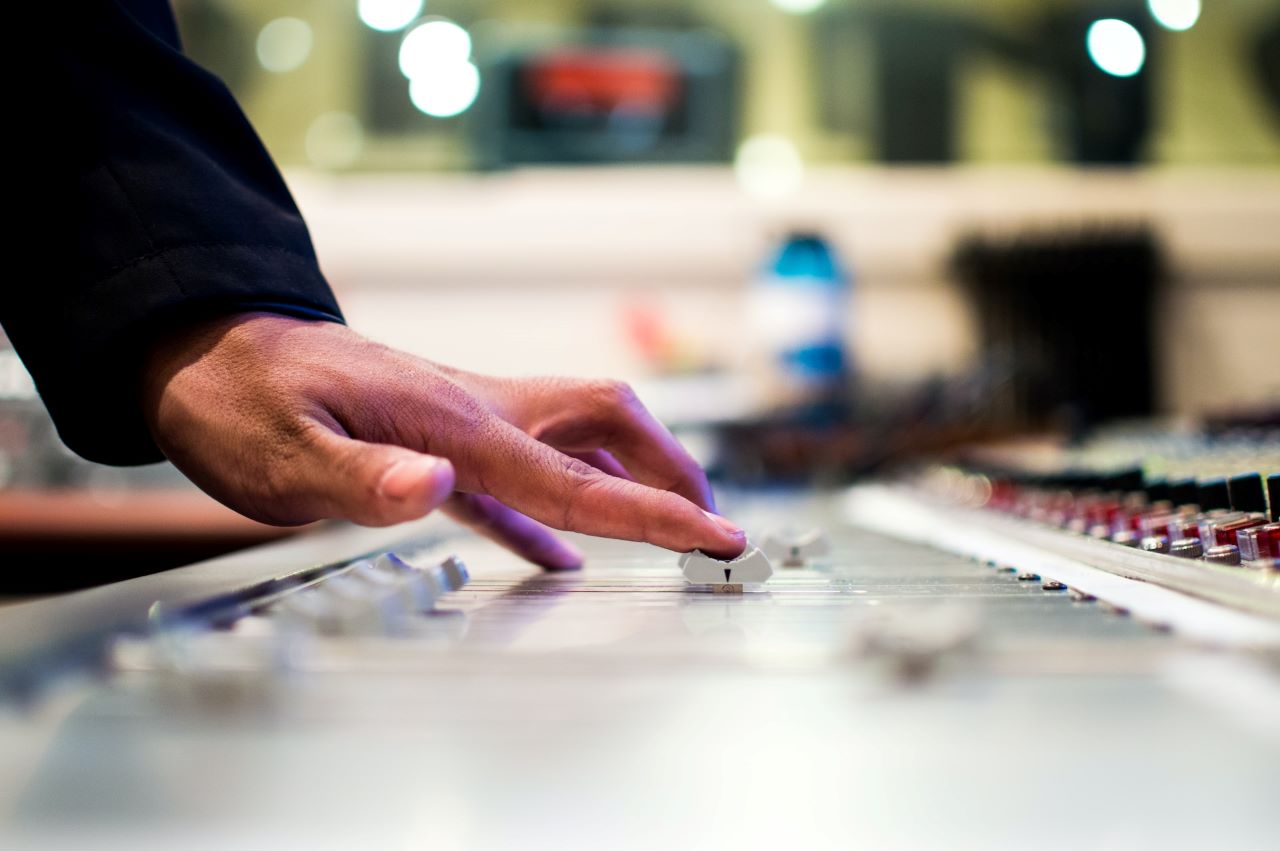
Photo by Drew Patrick Miller on Unsplash
For many podcasters, especially those new to audio equipment, the ease of use and interface of a mixer is a critical factor. A mixer with a straightforward, intuitive audio interface can significantly reduce the learning curve and improve your workflow.
Look for clearly labeled knobs, buttons, and sliders. A well-designed layout, where inputs and outputs are logically arranged, can make a big difference in how quickly you can set up and start podcast recording.
Some mixers also offer digital interfaces with software control. This can be a great feature for fine-tuning settings or saving presets, but ensure that the software is compatible with your computer and easy to use.
Portability And Size
The portability and size of your mixer are important if you record in various locations or have space constraints. For mobile or on-location recording, a compact, lightweight mobile device audio mixer is essential. These mixers are easy to transport and set up in different environments. However, smaller mixers might have fewer inputs and limited features.
Conversely, if you have a dedicated recording space, a larger mixer can offer more inputs and advanced features. Consider the physical space you have available and how the mixer will fit into your recording setup.
Compatibility With Other Equipment
Ensuring that your mixer is compatible with your existing equipment is crucial. This includes microphones, especially a USB microphone, headphones, recording devices, and even your computer for digital recording. Check the types of inputs and outputs on the mixer and make sure they match your microphones and other gear.
If you plan to integrate your mixer with software for recording or live streaming, check for compatibility issues. Some mixers work better with certain operating systems or software platforms. It’s also worth considering any additional cables or adapters you might need to connect all your equipment.
Brand Reputation And Reviews
The reputation of the brand and reviews from other users can provide valuable insights. Established brands generally offer reliability and quality, backed by better customer support and warranties. Reading reviews from other podcasters can give you an idea of the mixer’s performance in real-world scenarios. Pay attention to comments about durability, sound quality, and ease of use.
However, don’t let brand reputation be the only deciding factor. Sometimes, lesser-known brands offer great value and innovative features. Balance brand reputation with your specific needs and budget.
Future-Proofing Your Setup
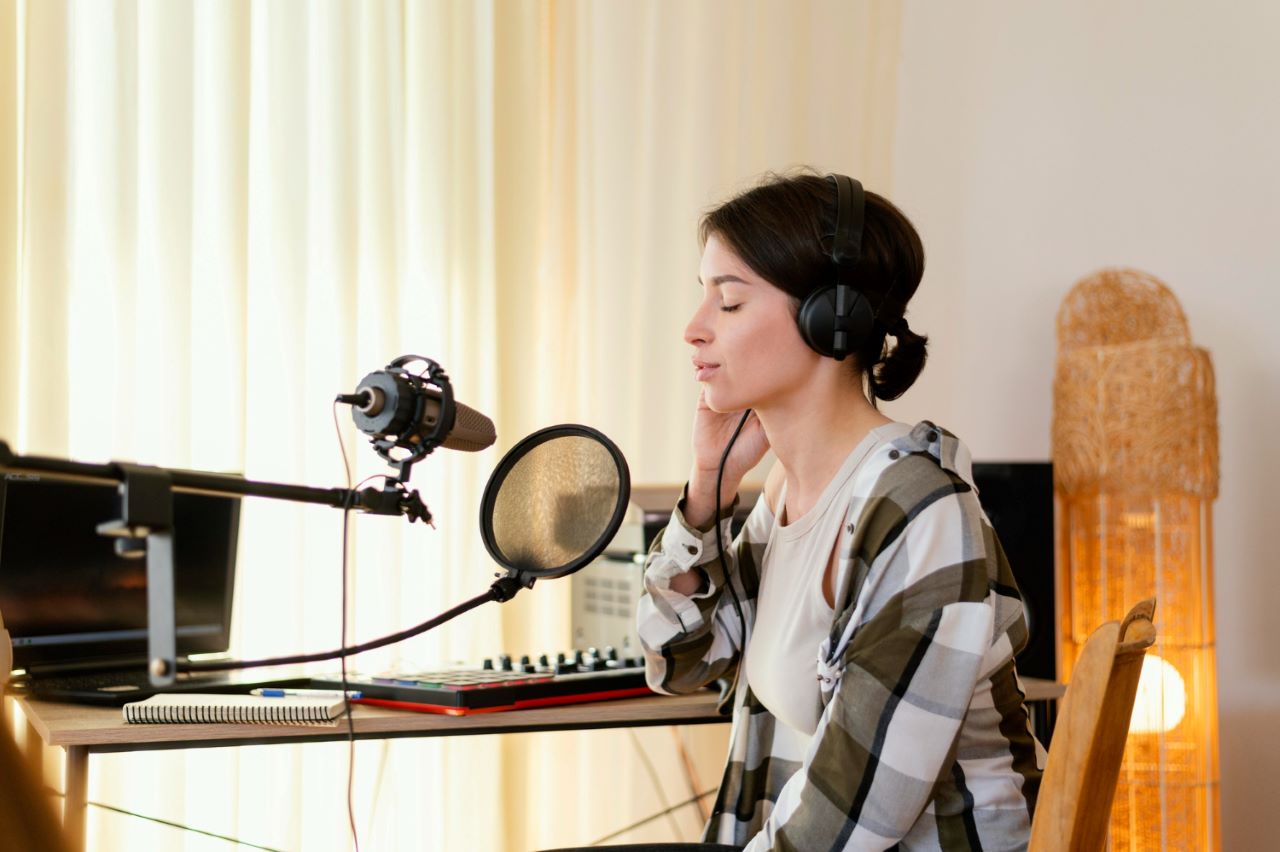
Image by Freepik
Consider the long-term trajectory of your podcast when choosing a podcast mixer. Selecting a mixer that can accommodate future growth and changes in your podcast format is a smart move. Think about potential expansions, like adding more hosts or incorporating more complex audio elements.
A mixer with additional inputs and advanced features can save you from needing an upgrade too soon. Also, consider the technological advancements in audio equipment. Opting for a mixer and a USB mic with the latest technology can ensure your setup remains relevant and efficient for years to come.
Each of these aspects plays a crucial role in choosing the right mixer for your podcast. They ensure that your investment not only meets your current needs but also supports the evolving demands of your podcasting journey
Conclusion: Making The Mixer Decision For Your Podcast
As we’ve navigated through the various aspects of choosing a mixer for your podcast, it’s clear that this decision is more than just a technical choice; it’s a step toward defining the sound and quality of your show. Whether it’s balancing the inputs and outputs, exploring onboard effects, adhering to budget constraints, or considering the portability and compatibility of the mixer, each factor plays a pivotal role in how your podcast resonates with your audience.
Remember, the right mixer for your podcast is the one that aligns with your specific needs, enhances your creative vision, and supports the growth of your show. It’s not just about the features it offers but also how those features integrate into your unique podcasting workflow. From the solo podcaster in a home studio to the professional team recording in various locations, the perfect mixer is out there for everyone.
In the end, investing in podcast mixers is investing in the future of your podcast. It’s about ensuring that your voice and the voices of your guests are heard clearly and compellingly. As you continue on your podcasting journey, let the insights from this guide lead you to a mixer that amplifies your story your way.
